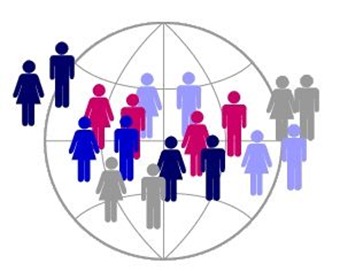In what could be touted as one of the world’s biggest demographic Census exercises will kick-off from today. The Census, which is estimated to collect data from 1.2 billion people, will include housing, internet, and computers, mobile and other details of basic amenities availed by the citizens.
The government has also decided to prepare National Population Register (NPR) – an identity database of all residents – which will aid in the national-level project of Unique Identification Number (UID) in making National Register of Citizens.

The process of data accumulation for the reformist measure of Multi-purpose UID project, which would contain very simple data in biometrics, will begin today with first data registry from the President Pratibha Patil.
NPR will include accumulation of identification data such as name of the person, family member’s names, date of birth, occupation and such other simple data. The data collection under NPR will also include fingerprints and photographs of the citizens. This data would be helpful in adding information to the ambitious UID project of India.
The process starts with the census in two phases. The first phase will kick start from today and is expected to be wrapped up until September 2010, while the second phase will begin from February 2011.
The data accumulation across the first and second phase of will include collection of information about the various demographic, social and economic data of the entire population. Some basic information collection would pertain to literacy, mother tongue, education and mortality among various other types of data points.
Census is an exercise carried out by the Government of India. Since 1881, population census is an exercise that is held every 10 years for updating the old data and information. From technical perspective, census and NPR are different while the aim of both exercises is accumulation of data but of various different kinds.
According to the government officials, all citizens should cooperate in providing requisite data to the staff visiting every home, the failure of which may attract fines.
The Census 2011 is a broad based data accumulation exercise, which during the earlier decades were limited in approach only to the demographic data, which includes accumulation of various diversified data such as basic amenities and other facilities being availed by the citizens.
Is it possible that such a big exercise can be carried out successfully?

[…] coming up with UID scheme is no doubt a challenge given the size of our country and also ensuring that the numbering scheme lasts for many many years (probably few centuries) to […]
I think the government hires temporary staff to collect the data for actual census. I remember giving out this information for 2000 census. The workers actually came to my house in the evening (after I had come back home from work) and took down my information.
For the first time, I was impressed by how efficient the government was. This time around, I believe that government will again outsource the data collection to other private players.
I know its fashionable to bash up government but based on my experience last time, I think it will succeed.
To Pradeep, Vishal Sanjay & Abhilash,
Firstly, thanks for all your comments and involvement.
I don’t think govt is going to outsource this work to any private agency. At the same time, I also doubt about the precise numbers that could be discovered from a Census data, taking in to account a huge number of unorganized slum dwellers, whose exact data may not be possible by a hasty census which spans for few months (about 3 months).
But, we can say that some sort of census is actually better than no census at all. Another innovative way in census reporting could be govt tying up with Indian Postal department who have expertise to reach ever nook-n-corner, be it posh skyscraper or maze-like slum area.
Respective Postal department and employees of every specific area have a better idea about the target population of that area. However, this is just my view and cannot comment much on it regarding actual feasibility of above thoughts of mine.
I think its better if they outsource this to some private sectors, or else this is definitely a flop. They may have to spend some extra bucks, but if they don’t then the government’s money will burn due to faults, fake ids and delays.
Successful implementation is merely a dream. Since it is a huge task and that too will be carried by govt, there would be more and more errors. Take the case of Voter id card, your name, age, address, and even photograph may be wrong..at least i have seen this several times